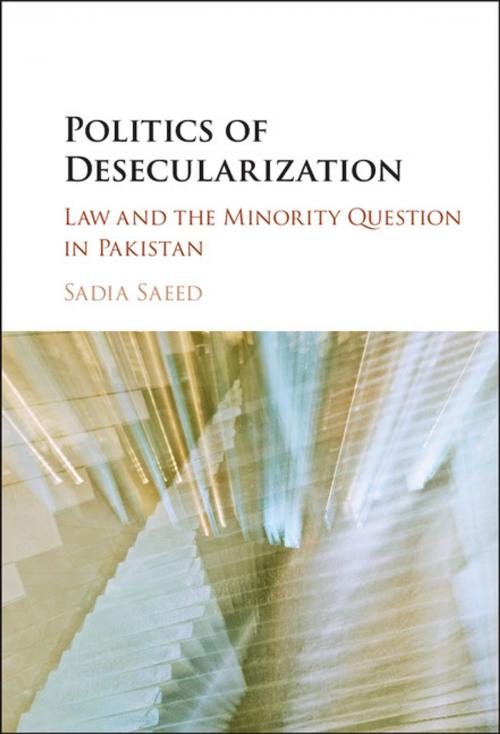Politics of Desecularization
Law and the Minority Question in Pakistan
Nonfiction, Social & Cultural Studies, Political Science, International, Social Science| Author: | Sadia Saeed | ISBN: | 9781108105811 |
| Publisher: | Cambridge University Press | Publication: | January 19, 2017 |
| Imprint: | Cambridge University Press | Language: | English |
| Author: | Sadia Saeed |
| ISBN: | 9781108105811 |
| Publisher: | Cambridge University Press |
| Publication: | January 19, 2017 |
| Imprint: | Cambridge University Press |
| Language: | English |
The movement away from secularist practices and toward political Islam is a prominent trend across Muslim polities. Yet this shift remains under-theorized. Why do modern Muslim polities adopt policies that explicitly cater to religious sensibilities? How are these encoded in law and with what effects? Sadia Saeed addresses these questions through examining shifts in Pakistan's official state policies toward the rights of religious minorities, in particular the controversial Ahmadiyya community. Looking closely at the 'Ahmadi question', Saeed develops a framework for conceptualizing and explaining modern desecularization processes that emphasizes the critical role of nation-state formation, political majoritarianism, and struggles between 'secularist' and 'religious' ideologues in evolving political and legal fields. The book demonstrates that desecularization entails instituting new understandings of religion through processes and justifications that are quintessentially modern.
The movement away from secularist practices and toward political Islam is a prominent trend across Muslim polities. Yet this shift remains under-theorized. Why do modern Muslim polities adopt policies that explicitly cater to religious sensibilities? How are these encoded in law and with what effects? Sadia Saeed addresses these questions through examining shifts in Pakistan's official state policies toward the rights of religious minorities, in particular the controversial Ahmadiyya community. Looking closely at the 'Ahmadi question', Saeed develops a framework for conceptualizing and explaining modern desecularization processes that emphasizes the critical role of nation-state formation, political majoritarianism, and struggles between 'secularist' and 'religious' ideologues in evolving political and legal fields. The book demonstrates that desecularization entails instituting new understandings of religion through processes and justifications that are quintessentially modern.















